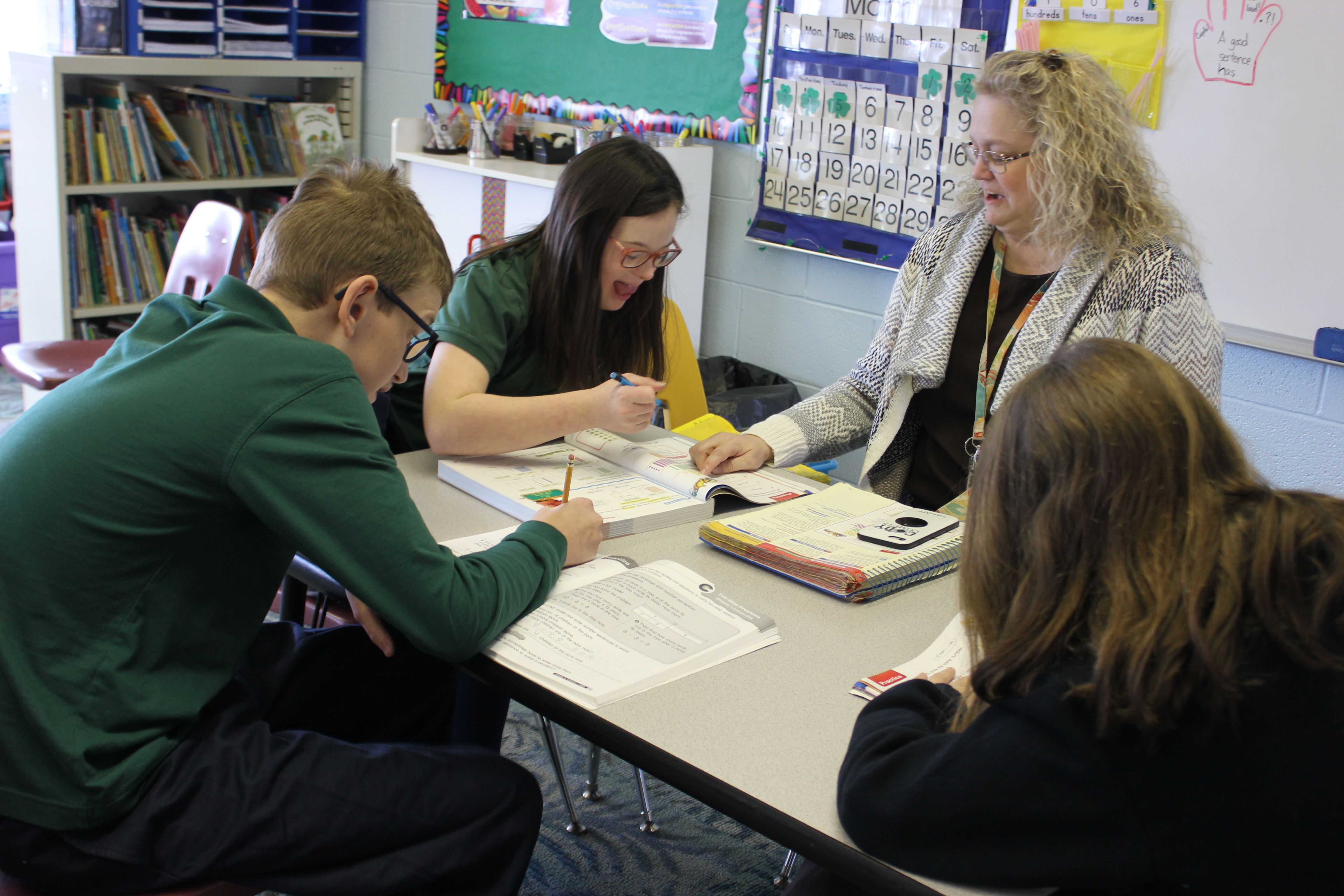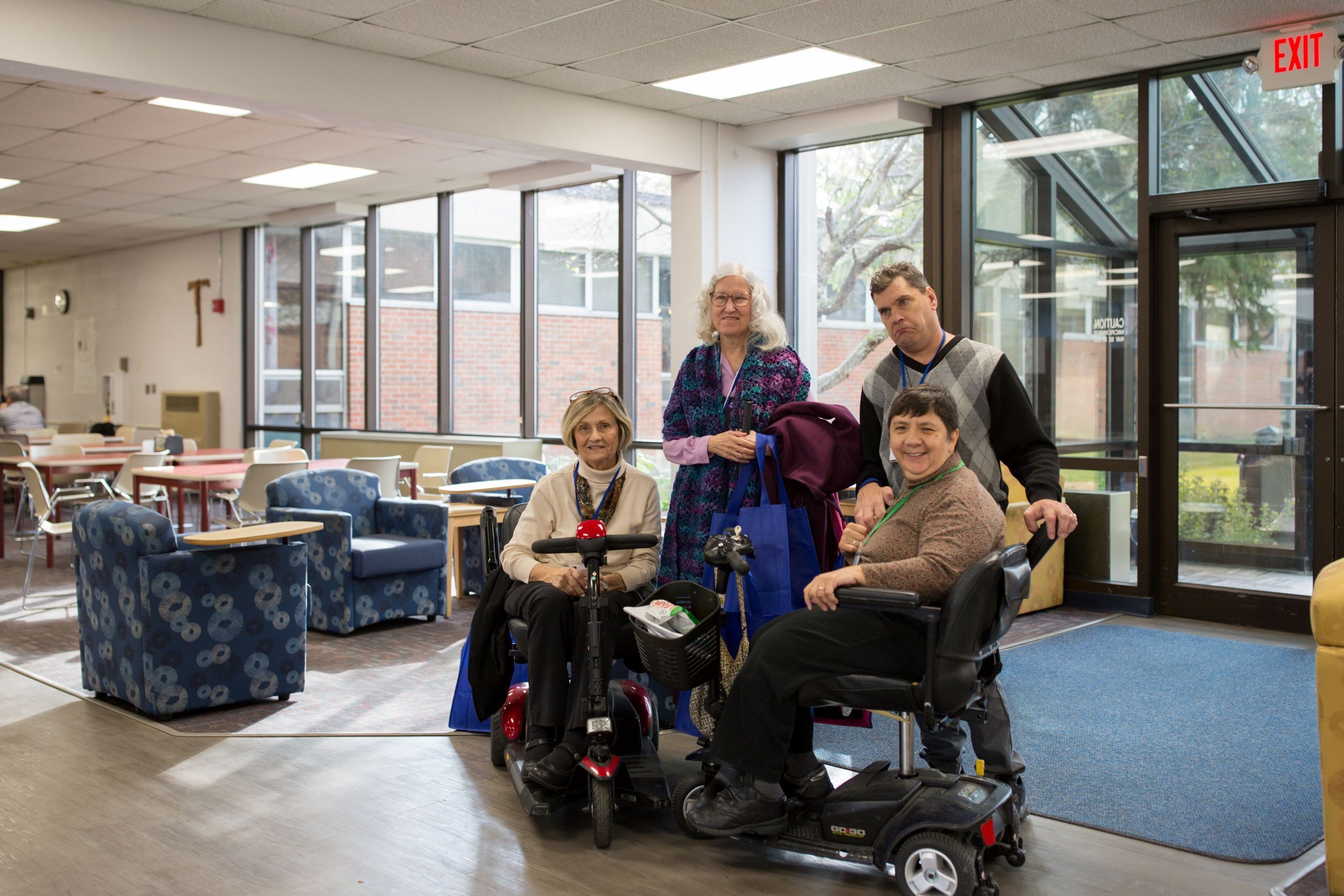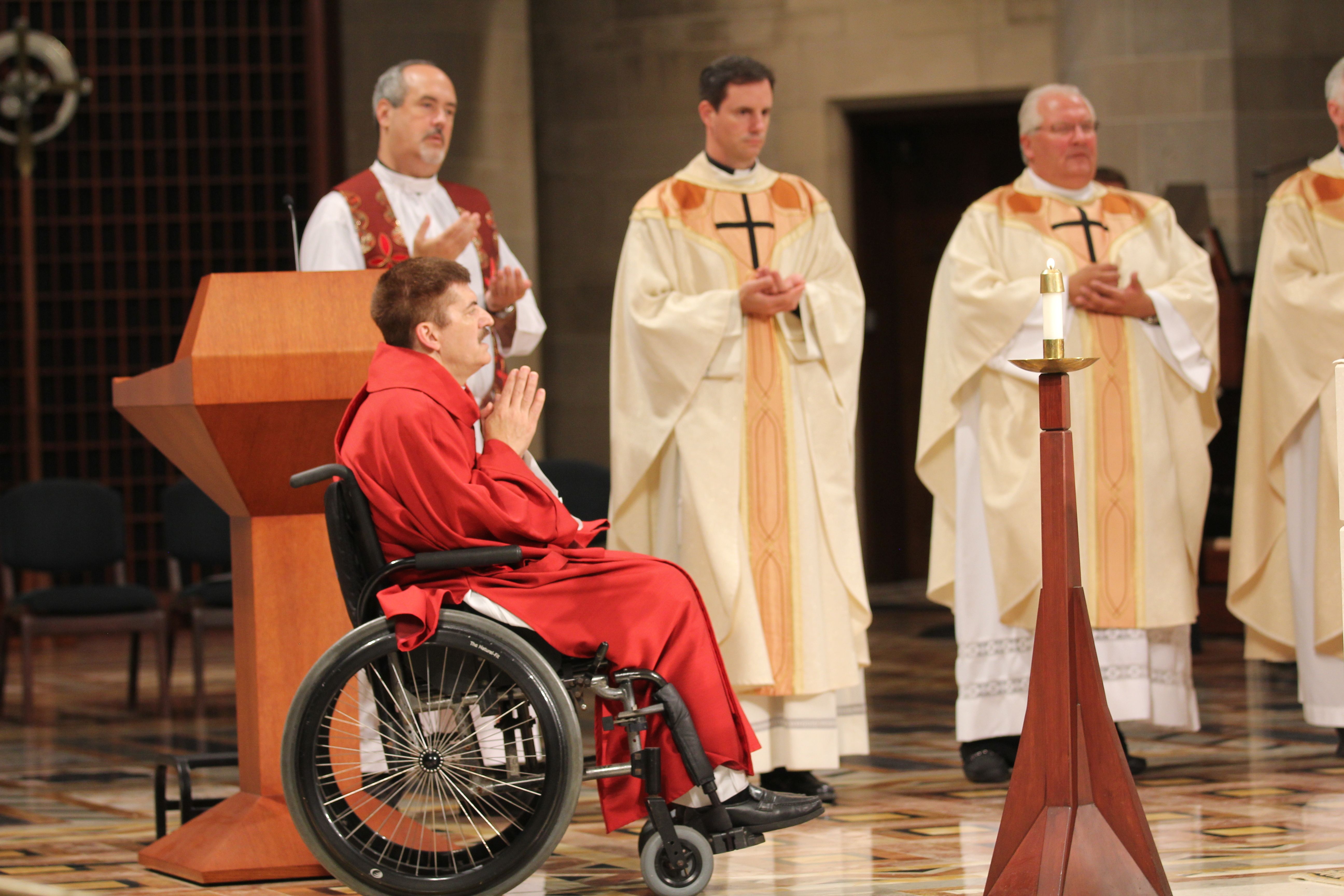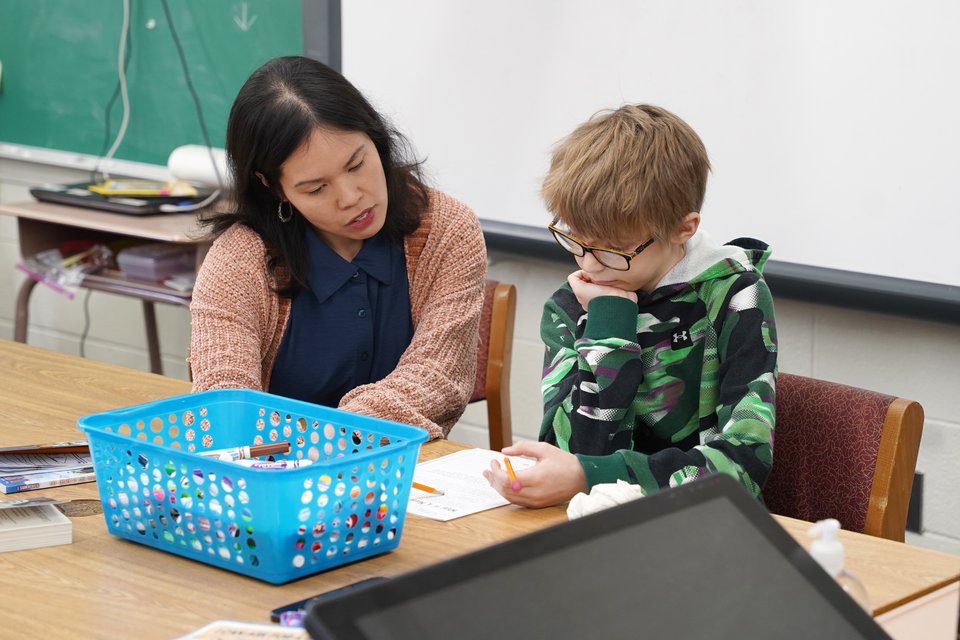'All Belong: Inclusion in Ministry' series gives parishes concrete action steps to include parishioners with disabilities
DETROIT — Catholics are called to include all in the celebration of the Mass and the life of the Church, but many are unsure where to begin. A new online training program intends to help parishes take those first steps toward inclusivity, specifically for those with disabilities or special needs.
The “All Belong: Inclusion in Ministry” video course aims to inspire the church community across the Archdiocese of Detroit to embrace and empower those with disabilities to realize their full potential to know, love and serve the Lord.
The course is structured within the "Encounter, Grow, Witness" paradigm and includes six modules with 25 videos. The approximately two-hour course is the brainchild of the archdiocese's Disability Ministry Leadership Council, co-chaired by Greg Carnachhi and Patrick Romzek.
After hosting an All-Belong Symposium in fall 2019 at Madonna University, the council received feedback regarding what was most needed to advance disability inclusion within the archdiocese. Overwhelmingly, the need was found at the parish level and among religious education programs.
“They were the least trained and needed the most support,” Carnacchi told Detroit Catholic.
The long-term goal was to reach out to clergy, parents and catechists — they were the ones who would touch every aspect of parish life, Carnacchi said.
“By our baptism, we are called to reach out and share the good news with everyone, not just certain people,” Carnacchi said. “There was a real sense that there was a desire to help with inclusion, but people didn’t know what to do; they didn’t want to make a mistake, they didn’t want to mess up. So this symposium was a starting point to bring people together who either wanted to start ministries of inclusion in their own parishes or were already doing it.”

Disability inclusion work needs to start at the parish level, Romzek told Detroit Catholic.
Romzek has dedicated his life to making the Church a more inclusive place for all those with disabilities, including his son, Andrew, who has Down syndrome. In addition to his work on the council, Romzek also chairs the Catholic Disability Foundation's board on a national level, co-leads the disabilities ministry at his parish, Our Lady of Victory in Northville, and, during the winter months, serves as the lead person for the disability ministry in the Diocese of Venice in Florida.
In addition to the work he does in the Church, Romzek also runs Bridge to Opportunity Academy, a train-to-hire program that helps people with disabilities to secure meaningful jobs in the information technology industry. Romzek said Andrew, now 34, inspires him, and he feels that this is where he is called to make a difference.
“I see people with disabilities as part of all aspects of parish life at Our Lady of Victory,” Romzek said, adding that isn’t the case at all parishes.
“A lot of parishes don’t have any sacramental preparation for a child with disabilities,” Romzek said. “For a Catholic parent who has a child with a disability, the first thing they want is for their child to be included in the life of the Church, and they want them to receive their sacraments. Many parishes don’t have a strategy on how to do that.”
Romzek emphasized this lack of inclusivity isn't for a lack of desire, but rather a lack of know-how. That was the drive for creating the inclusion series, Romzek explained, which he said is an introduction or “101”-level program.

“There is a lot more we can do; we can go a lot deeper on a lot of topics around disability inclusion,” Romzek said.
Inclusion in parishes can mean having wheelchair accessibility or a Loop system in the Church for those who are hard of hearing. Our Lady of Victory was recording and live-streaming Masses long before COVID-19, Romzek said, in order to accommodate those who couldn’t attend in person. The parish also offers a special needs Mass and has a sacramental preparation strategy for children with special needs.
Nicole Joyce, coordinator of natural family planning and family support ministry for the archdiocese, consulted with Romzek and Carnacchi on the new program, offering her real-world perspective as a mother of four, two of whom have disabilities.
Joyce said many evangelization opportunities are overlooked when talking about diversity and disability ministry.
“When it comes to engagement or giving people opportunities to encounter Christ, those are things we don’t really think about,” in regards to people with disabilities, Joyce explained. “We tend to plan the same events over and over again, and they tend to not feel very inclusive to individuals or families with disabilities.”
Parish events like festivals, family nights or even Bible studies are important, but when families hear about these events, they are likely first going to think it sounds stressful, Joyce said.
“In a lot of ways, it is just about ... saying, ‘How might this look unwelcoming to someone in a specific circumstance with a specific disability, and what can we do to make it feel more inclusive?’” Joyce said. “Sometimes, it is really not about the event specifically, it is that we have never really made an effort to personally invite those families to come to them.”
Joyce said one of the first steps toward better inclusivity is engaging with families.

Sometimes the solution is simple, Joyce said, such as making sure there is a wheelchair ramp, or creating quiet spaces away from loud, busy events where a child who is easily overstimulated can pause and calm down. Or offering child care with a provider who is trained in disability care so parents can attend an event without worry.
Romzek said the video series includes the perspectives of local families of children with disabilities, as well as speakers from the National Catholic Partnership on Disability with specific expertise in disability inclusion. Romzek said the council plans to expand on the series, which will be driven by parishes' feedback.
One future initiative is a mentoring program, Carnacchi said, which will allow parishes to work with those are experienced and trained in disability ministry.
Everyone with a disability has gifts to offer the Church and has a desire to know God and be with Him, Carnacchi said.
“When the archbishop shared his pastoral letter, ‘Unleash the Gospel,’ two words jumped out at me, and they reflect what Jesus did: invite and accompany,” Carnacchi said. “Jesus didn’t say go out and preach the good news to these people and these people, and don’t worry about those people. He said go out and preach to all in all corners of the earth. He includes everyone in his ministry, those with disabilities and those without disabilities.”
For more information or to enroll in the "All Belong: Inclusion in Ministry" course, visit the Archdiocese of Detroit's "Encounter, Grow, Witness" resource website.
Copy Permalink
Disabilities ministry












